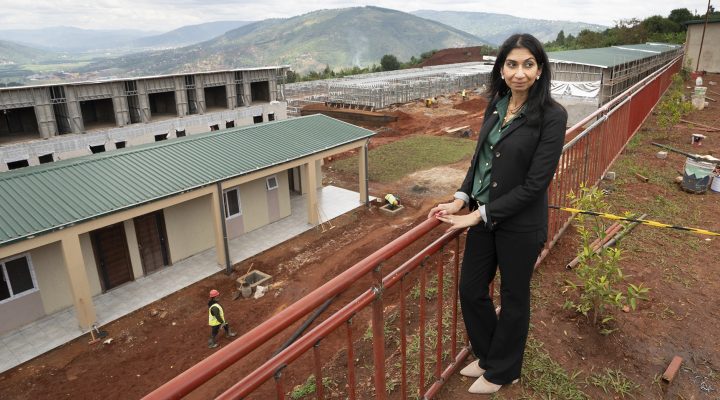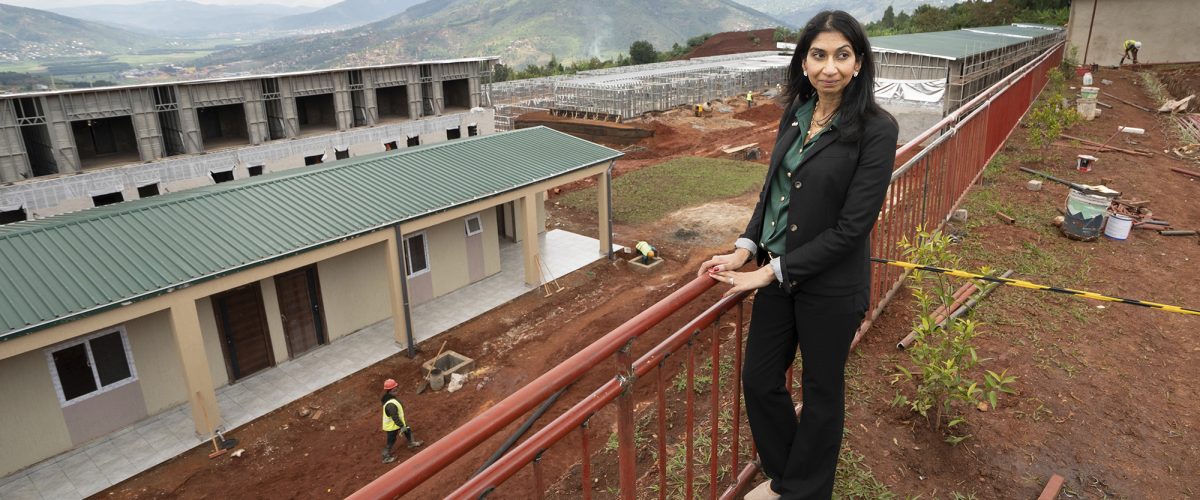The United States practice of paying Mexico millions of dollars to keep asylum-seeking immigrants from crossing the southern border is not unique. The United Kingdom does something similar in partnership with Rwanda.
In the U.S., the Biden administration has been roundly criticized for not being much more welcoming to asylum seekers than the Trump administration, which was notoriously anti-immigrant in policy.
Now, rather than admit migrants and allow them to apply for asylum, the U.S government requires many of them to return to any of the countries they traveled through to apply for asylum and then wait.
According to a CBS News report, “The U.S. deported or returned more than 11,000 migrants to Mexico and more than 30 other countries in a week as part of a Biden administration effort to increase and publicize deportations following the expiration of Title 42 border restrictions.”
The deportations happened after U.S and Mexican government officials met and discussed ways of tackling migration, a move that followed a “joint initiative that President López Obrador and President Biden announced in January 2023.”
According to a Congressional Research Service report, from 2015 to 2022, the State Department spent more than $58.5 million in support of Mexico’s immigration control and border security measures.
In this practice, the U.S. shares something in common with the UK, which engages Rwanda, an East African country, to checkmate migrant inflow to the UK.
“Removing people from the UK by charter flight cost more than £13,000 per person in 2020.”
A BBC report revealed that, “So far, the UK has paid the Rwandan government £140m for the scheme. Other costs include flights to Rwanda, food, accommodation, access to translators and legal advice. Removing people from the UK by charter flight cost more than £13,000 per person in 2020.”
Under this plan, some asylum seekers are “sent to Rwanda on a one-way ticket to claim asylum there” and may be granted refugee status to stay in Rwanda. “If not, they can apply to settle there on other grounds, or seek asylum in a ‘safe third country.’”
When first announced, the policy was described by then Home Office Minister Tom Pursglove as costing “similar to the amount of money we are spending on this” already. He predicted that “longer term, by getting this under control, it should help us to save money.”
The UK plan was not well received by many human rights activists, who considered the policy insensitive or unjust. Despite their opposition and a court case instituted against it, UK authorities had the upper hand after a high court ruled the UK had not violated international statute with its Rwandan plan. Some of those who lost the case are currently appealing the high court decision and a verdict on that is yet to be delivered.
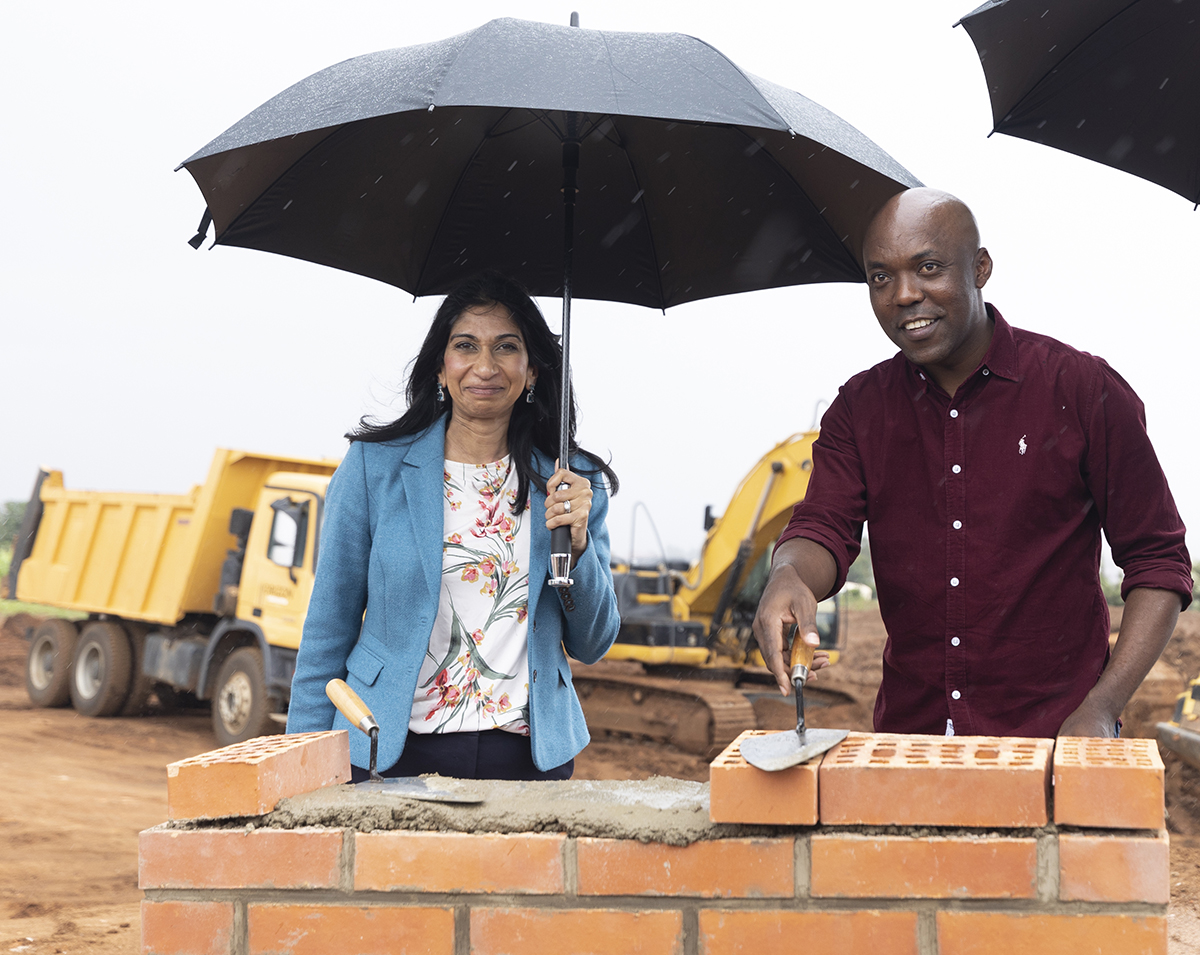
Britain’s Home Secretary Suella Braverman, left, and Rwanda’s Minister of Infrastructure Ernest Nsabimana, right, lay bricks at another housing development for migrants, in the capital Kigali, Rwanda, on Sunday, March 19, 2023. Britain’s government said Sunday that it could start deporting asylum-seekers to Rwanda in the next few months — but only if U.K. courts rule that the controversial policy is legal. (AP Photo)
In March this year, UK Home Secretary Suella Braverman visited Rwanda to meet with Rwandan President Paul Kagame and other officials.
According to Arab News, Braverman “visited accommodation intended to house deportees from the UK and laid a brick at another housing development for migrants. The project is expected to build more than 1,000 houses.”
Speaking on her experience, Braverman said: “I have thoroughly enjoyed seeing firsthand the rich opportunities this country can provide to relocated people through our partnership.”
Sheriff Bojang Jr, a Gambian journalist, believes the policy of sending refugees to foreign countries or compelling them to return there is unfair.
“First, it is cruel as far as human rights and human dignity are concerned. Asylum seekers are supposed to be heard, with respect and dignity. You cannot just rubbish their plight and eject them out of the country just like that no matter how (unconvincing) their reasons for asylum might be.
“Second, to catapult them to Rwanda will very likely not deter them from coming (back). When desperate, people who flee conflict and insecurity don’t stop going to a safe country just because that country will send them to Rwanda or any other third-party state,” he said, adding, “In the case of Rwanda, the policy is laughable. To accept to serve as a solution country to UK’s immigration/asylum problem or nightmare is simply stupid.”
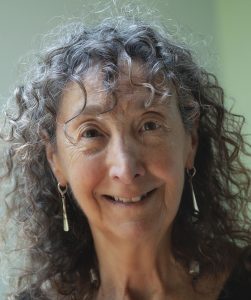
Karen Musalo
Karen Musalo, a professor and director of the Center for Gender and Refugee Studies at U.C. San Francisco School of Law, told Baptist News Global she does not share the view of U.S and UK authorities who have defended their policies as necessary to ensure a safer and just pathway for those seeking to settle in the countries.
“It is a blatant attempt for the wealthy, industrialized nations to avoid the obligation to protect refugees that they committed to when they became parties to the 1951 Refugee Convention and/or its 1967 Refugee Protocol,” she explained. “In both cases, they are willing to block asylum seekers from accessing protection and are willing to close their eyes to the lack of safety in the countries or regions to which they are sending them.”
For example, she continued, “It is well documented that Mexico is not a safe country for asylum seekers — with over 13,000 documented violent attacks on migrants in 2021 and 2022 alone. Certain groups are at higher risk in Mexico, including women and children, LGBTQ individuals and Black migrants.
“Similarly, the UK knows Rwanda is not a safe country for asylum seekers. It denounced Rwanda’s human rights record in 2021 at the Universal Periodic Review; in addition, reputable human rights organizations such as Human Rights Watch have documented the extensive human rights violations in the country. So it is a cruel fiction to call these countries ‘safe’ for refugees.”
While some may view the UK and U.S. partnerships as transactional, and therefore good business, Musalo sees it differently.
“When we are talking about human safety and dignity, I don’t think what is ‘good business’ really should come into the picture. I believe what should be considered are legal and moral factors. … What is ultimately ‘good business’ is living in a world where countries adhere to their international obligations, as well as their obligations under their own laws,” she said. “We do not need to look far to see the devastating consequences when countries violate international norms. When rich countries pay less-wealthy countries in order to circumvent their international obligations, it is not good for constructing a just and stable world.
“And given that countries have undertaken obligations to not return refugees to harm, it is a violation of their legal obligations. It is also unethical and immoral,” she added.
Despite claims that neither the U.S. nor the UK could possibly receive and adjudicate the number of those who come seeking asylum, the reality is the wealthy countries of the world take in or host a minuscule percentage of the refugees and displaced persons globally, Musalo reported. “Middle- and lower-income countries host more than 75% (perhaps even higher) of the world’s refugees. It is time for countries like the U.S and UK to step up and do their fair share.”
Of course, both those engaged in the partnerships do not see it that way.
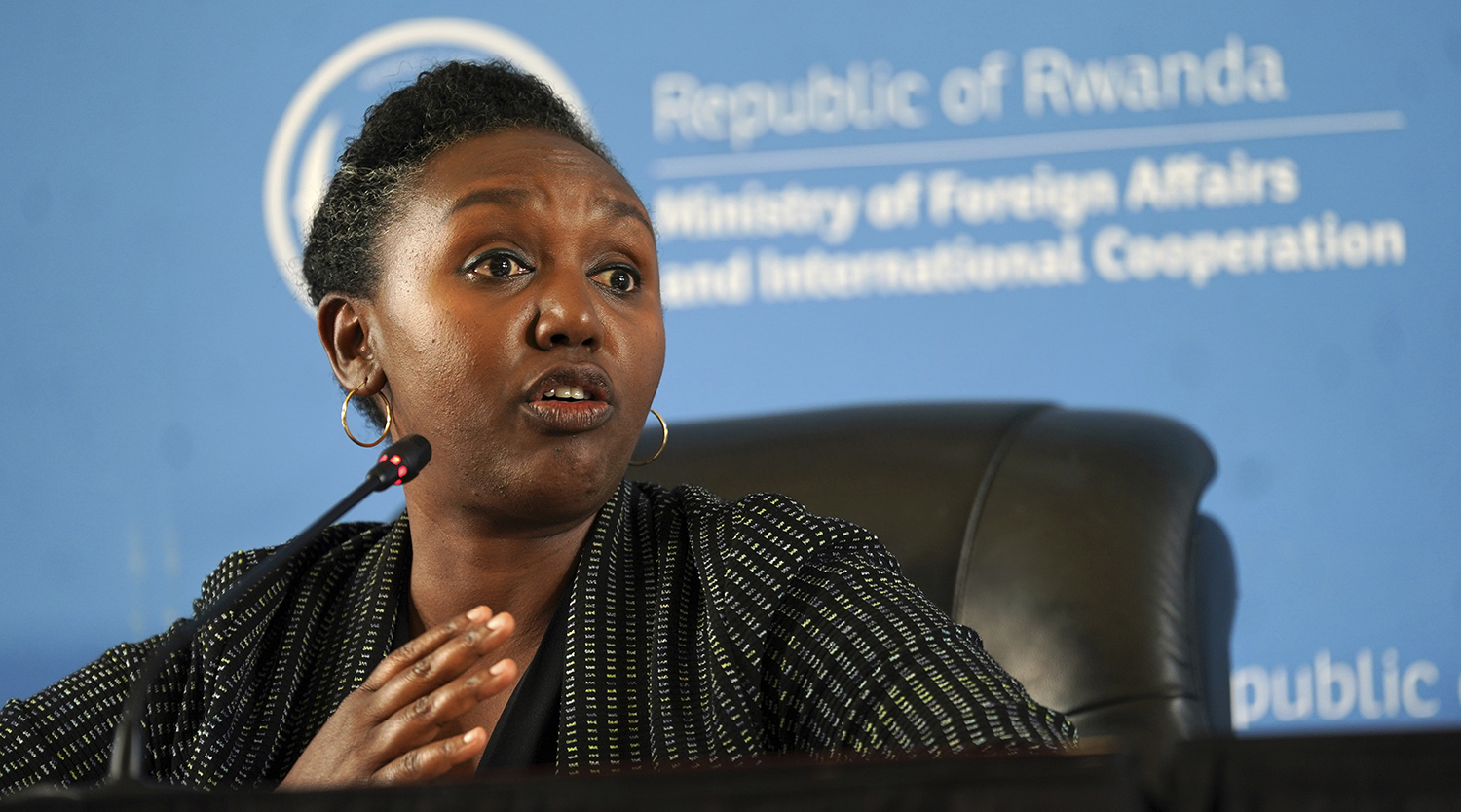
Yolande Makolo, spokeswoman for the Rwandan government, leads a press conference at the Ministry of Foreign Affairs in Kigali, Rwanda, on June 14, 2022. (Victoria Jones/PA Wire URN:67431261 Press Association via AP Images)
Yolande Makolo, Rwandan government spokesperson, told BNG: “I (would) like to clarify that Rwanda is not setting up a processing center for migrants. Rwanda is working with the UK on an innovative partnership that provides migrants safety and the opportunity to build new lives in Rwanda — through employment, training and education opportunities, the chance to live in dignity in a safe country, with full access to public services.”
She added: “Those who wish to make an asylum claim in Rwanda can do so as we are signatories to the Refugee Convention and have a refugee determination system. Rwanda currently hosts over 130,000 refugees, mostly from neighboring countries. For the last four years, we have also been working with the African Union, UNHCR and the European Union to evacuate endangered migrants from Libya.”
The only way to solve the global migration crisis, the Rwanda spokeswoman said, “is to create opportunities across the world, so that migrants in Africa and elsewhere do not feel that they need to risk their lives crossing deserts and oceans to find safety and opportunity elsewhere.”
Anthony Akaeze is a Nigerian-born freelance journalist who lives in Houston. He covers Africa for BNG.
Related articles:
What happens after Title 42? | Opinion by Elket Rodriguez
Why most everything you think you know about global migration is probably wrong
A tragic tale of death on the Mediterranean Sea amid Tunisian and British migrant backlash

